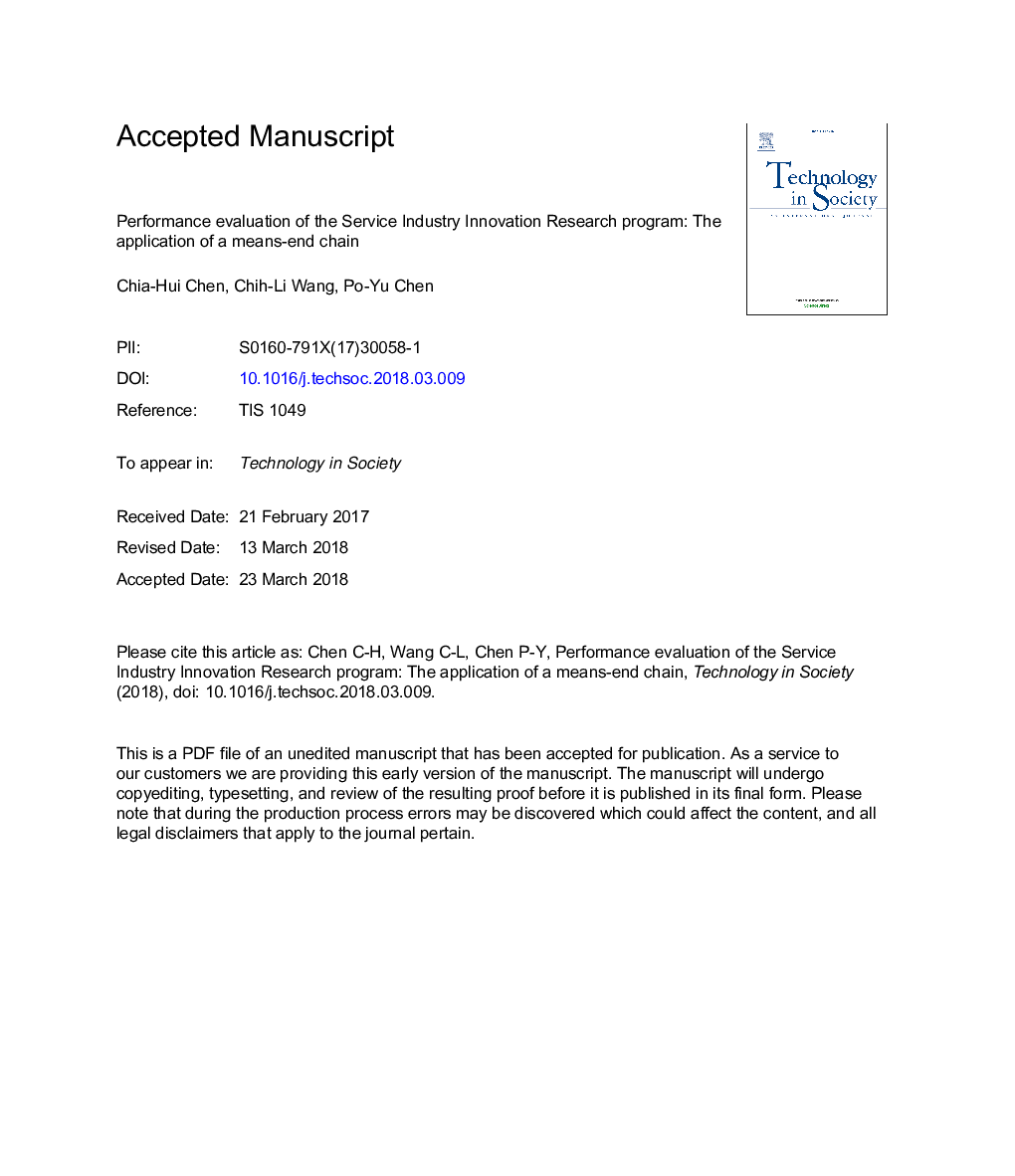| Article ID | Journal | Published Year | Pages | File Type |
|---|---|---|---|---|
| 6851419 | Technology in Society | 2018 | 18 Pages |
Abstract
Service Industry Innovation Research (SIIR) is a program run by the Department of Commerce under the Ministry of Economic Affairs in Taiwan to subsidize enterprises and assist them in attaining core technological abilities, increasing added values, and creating a competitive edge. Innovations can be categorized into four types: new services and products, new business models, new marketing models, and new commercial application technologies. This study adopted the means-end chain theory to understand the values created by the SIIR program for its subsidized enterprises in 2012 and 2013. The relationship between the program's attributes and the benefits and values it created was examined to determine the effectiveness of this government program and increase the efficiency of budget allocation. Specifically, it was observed that the attributes of ”government funding grants” and ”service innovative ideas” were linked to the critical values of ”substantial innovation and promotion ability” and ”improved customer satisfaction” through the ”complete innovation target” and ”new revenue target achievements” consequences. In addition, consequence-value links and distinct critical paths to ultimate values for projects with these four innovation types were used to verify the performance of the SIIR program. The findings may serve as a reference for the government in developing industry policies.
Keywords
Related Topics
Social Sciences and Humanities
Business, Management and Accounting
Business and International Management
Authors
Chia-Hui Chen, Chih-Li Wang, Po-Yu Chen,
